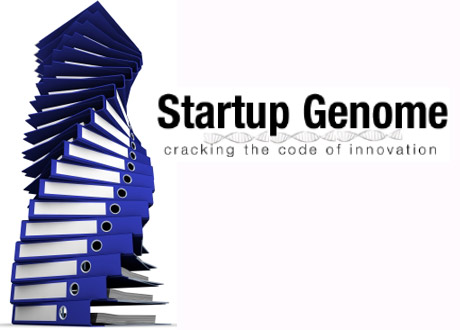By: Innovation Management
In this report we reveal in-depth research about what makes Silicon Valley startups successful. The report is a 50 page analysis based on data from 650+web startups. The report was coauthored by Berkeley & Stanford faculty members. Other contributors include Steve Blank, the Sandbox Network, and 10 accelerators from around the globe.
The goal of the Startup Genome project is to increase the success rate of startups and accelerate pace of innovation around the world by turning entrepreneurship into a science.
With the first Startup Genome report we aim to lay the foundation for a new paradigm of assessing startups and understanding the drivers of entrepreneurial performance.
Many entrepreneurs that we have talked with, especially younger ones, considered describing the repeating patterns of startups an impossible task or even a disgraceful reduction of the artistry of entrepreneurship to numbers and graphs. With this report we do not mean to imply that there is no art to entrepreneurship but rather that entrepreneurship is strongest at the intersection of science and art. By gaining a deeper understanding of the repeating patterns underlying success and failure entrepreneurs can dramatically increase their ability to innovate.
The window of opportunity for this project has only recently been opened. In just the last 2-3 years the number of people extracting and codifying the informal learning of Silicon Valley has hit a point of critical mass. Concurrently the costs of startup creation have fallen dramatically triggering a huge increase in technology entrepreneurship all over the world.
The theories and models that have had the most widespread adoption are effectively applying scientific management principles to startups, with the two most well known theories being Customer Development and the Lean Startup. Yet despite this huge knowledge base emerging about how startups work, startups have been able to absorb little more than the basic patterns of how to build a startup. Most founders don’t know what they should be focusing on and consequently dilute their focus or run in the wrong direction. They are regularly bombarded with advice that seems contradictory, which is often paralyzing. And while startups are now gathering way more qualitative and quantitative feedback than they were just a few years ago, their ability to interpret this data and use it to make better business decisions is sorely lacking. The primary cause of these problems is that we lack the necessary structure to assimilate and build upon our accumulated knowledge on the nature of startups.
We believe the solution is the development of a flexible framework that enables the integration of the principles, methodologies and wisdom that have been discovered about how to create a successful startup.
For the last 5 months we’ve been working closely with Steve Blank, the progenitor of Customer Development and the startup science movement, to build this framework, which currently serves as the foundation of the Startup Genome Project. In February we publicly announced the project and released a survey to test three key aspects aspects of our framework. We received an overwhelmingly positive response and 650+ startups filled out our survey.
The three key ideas we set out to test were:
- Startups evolve through discrete stages of development. Each stage can be measured with specific milestones and thresholds.
- There are different types of startups. Each type evolves through the developmental stages differently.
- Learning is a fundamental unit of progress for startups. More learning should increase chances of success.
Max Marmer, blackbox
Bjoern Lasse Herrmann, blackbox
Ron Berman, UC Berkeley
With collaboration and support from:
Chuck Eesley, Stanford University
Steve Blank, Stanford University
Fadi Bishara, blackbox
Contact: StartupGenome@blackbox.vc
Web: startupgenome.cc & blackbox.vc

